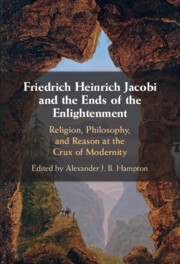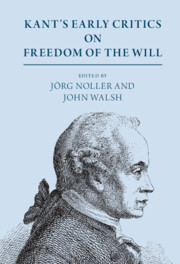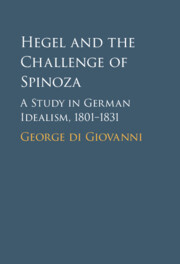Refine search
Actions for selected content:
23 results
Contra Schelling: The trap of Coercive Strategy in a Multinodal Era
-
- Journal:
- Perspectives on Politics , First View
- Published online by Cambridge University Press:
- 28 November 2025, pp. 1-17
-
- Article
-
- You have access
- Open access
- HTML
- Export citation
16 - The Segregation of Belief: How Structure Facilitates False Consensus
- from Part IV - Society
-
- Book:
- Behavioral Network Science
- Published online:
- 08 November 2024
- Print publication:
- 19 December 2024, pp 258-277
-
- Chapter
- Export citation
Chapter 4 - On Hegel’s Account of Nature and Its Philosophical Investigation
- from Part I - Hegel’s Philosophy of Nature in the Historical and Systematic Context
-
-
- Book:
- Hegel's <i>Philosophy of Nature</i>
- Published online:
- 19 December 2024
- Print publication:
- 12 December 2024, pp 76-96
-
- Chapter
- Export citation
Hegel’s Philosophy of Nature
-
-
- Book:
- Hegel's <i>Philosophy of Nature</i>
- Published online:
- 19 December 2024
- Print publication:
- 12 December 2024, pp 1-12
-
- Chapter
- Export citation
Chapter 21 - Goethe and German Idealism
- from Part IV - Philosophy and Science
-
-
- Book:
- Goethe in Context
- Published online:
- 16 May 2024
- Print publication:
- 23 May 2024, pp 206-215
-
- Chapter
- Export citation
Chapter 19 - Goethe and Philosophy
- from Part IV - Philosophy and Science
-
-
- Book:
- Goethe in Context
- Published online:
- 16 May 2024
- Print publication:
- 23 May 2024, pp 187-195
-
- Chapter
- Export citation
Schelling and the problem of evil
-
- Journal:
- Religious Studies / Volume 61 / Issue 1 / March 2025
- Published online by Cambridge University Press:
- 10 October 2023, pp. 1-15
- Print publication:
- March 2025
-
- Article
- Export citation
Introduction
-
-
- Book:
- Friedrich Heinrich Jacobi and the Ends of the Enlightenment
- Published online:
- 09 February 2023
- Print publication:
- 16 February 2023, pp 1-6
-
- Chapter
- Export citation

Friedrich Heinrich Jacobi and the Ends of the Enlightenment
- Religion, Philosophy, and Reason at the Crux of Modernity
-
- Published online:
- 09 February 2023
- Print publication:
- 16 February 2023
Chapter 6 - Schopenhauer in Dialogue with Fichte and Schelling: Schopenhauer’s Critique of Moral Fatalism and His Turn to Freedom from Willing
-
-
- Book:
- Schopenhauer's 'The World as Will and Representation'
- Published online:
- 08 December 2022
- Print publication:
- 22 December 2022, pp 123-141
-
- Chapter
- Export citation
14 - Coleridge’s Philosophies
-
-
- Book:
- The New Cambridge Companion to Coleridge
- Published online:
- 13 November 2022
- Print publication:
- 24 November 2022, pp 209-224
-
- Chapter
- Export citation
11 - Romanticism and Existentialism
- from Part I - Psychology’s Historical Foundations
-
- Book:
- History and Systems of Psychology
- Published online:
- 04 November 2022
- Print publication:
- 17 November 2022, pp 202-217
-
- Chapter
- Export citation
Chapter 1 - Judgement and the German Idealists
-
- Book:
- Judgement and Sense in Modern French Philosophy
- Published online:
- 09 June 2022
- Print publication:
- 23 June 2022, pp 9-47
-
- Chapter
- Export citation
Friedrich Wilhelm Joseph Schelling, “General Overview of the Most Recent Philosophical Literature,” Philosophisches Journal 7(2) (Jena and Leipzig, 1797), 105–186
- from V - Freedom and Choice
-
- Book:
- Kant's Early Critics on Freedom of the Will
- Published online:
- 24 March 2022
- Print publication:
- 31 March 2022, pp 250-262
-
- Chapter
- Export citation

Kant's Early Critics on Freedom of the Will
-
- Published online:
- 24 March 2022
- Print publication:
- 31 March 2022
Chapter 5 - Schelling, Hegel, and Positivity
-
- Book:
- Hegel and the Challenge of Spinoza
- Published online:
- 17 September 2021
- Print publication:
- 30 September 2021, pp 130-177
-
- Chapter
- Export citation
Chapter 2 - The Nature of “Nature” in Contention
-
- Book:
- Hegel and the Challenge of Spinoza
- Published online:
- 17 September 2021
- Print publication:
- 30 September 2021, pp 25-56
-
- Chapter
- Export citation
Chapter 6 - Of Things Divine and Logical
-
- Book:
- Hegel and the Challenge of Spinoza
- Published online:
- 17 September 2021
- Print publication:
- 30 September 2021, pp 178-236
-
- Chapter
- Export citation
Chapter 4 - Schelling’s Prophetic Spinozism
-
- Book:
- Hegel and the Challenge of Spinoza
- Published online:
- 17 September 2021
- Print publication:
- 30 September 2021, pp 88-129
-
- Chapter
- Export citation

Hegel and the Challenge of Spinoza
- A Study in German Idealism, 1801–1831
-
- Published online:
- 17 September 2021
- Print publication:
- 30 September 2021
